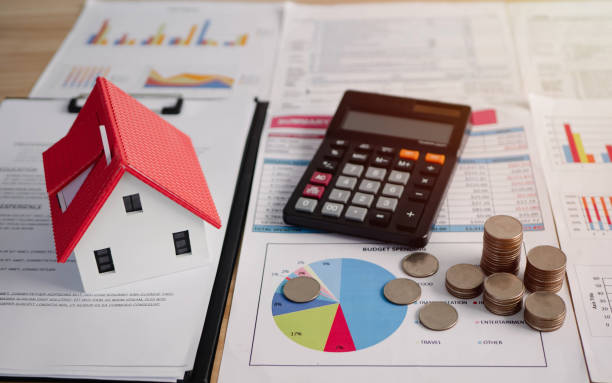How much down payment do I need to make for a commercial mortgage? So, you’re thinking about diving into the world of commercial real estate. That’s exciting!
But let’s face it, the financial side can be a bit daunting. Especially when it comes to figuring out the down payment for a commercial mortgage.
How much do you need to put down? What factors influence this amount? And how can you raise the funds needed?
Don’t worry, we’ve got you covered. In this guide, we’ll break down everything you need to know about commercial mortgage down payments.
Whether you’re a seasoned investor or a newbie, this guide will help you navigate the process with ease. Let’s get started!
“
Understanding Commercial Mortgages and Down Payments
First things first, let’s clarify what a commercial mortgage is. It’s a loan secured by commercial property, like an office building, retail center, or an apartment complex.
Unlike residential mortgages, commercial mortgages are typically taken out by businesses, not individuals. They’re used to purchase or refinance commercial properties.
Now, onto the down payment. This is the upfront amount you pay towards the purchase price of the property. It’s a crucial part of the mortgage process.
Here’s why:
- It reduces the loan-to-value ratio, which can help you secure better loan terms.
- It shows lenders you’re serious about the investment.
- It reduces the risk for the lender, as they’re not financing the entire purchase price.
Understanding these basics is the first step towards navigating the commercial mortgage landscape. Up next, we’ll delve into what you can typically expect when it comes to down payments for commercial mortgages.
Typical Down Payment Expectations for Commercial Mortgages
So, you’re probably wondering, “How much down payment do I need to make for a commercial mortgage?” Well, it’s not a one-size-fits-all answer.
Typically, commercial mortgage down payments range from 20% to 35% of the purchase price. That’s quite a chunk of change, right? But remember, this is just a general range.
The exact amount can vary based on several factors. These include the type of property, your creditworthiness, and the lender’s policies. We’ll dive deeper into these factors in the next section.
Here’s a quick breakdown of what you might expect:
- For a $1 million property, a 20% down payment would be $200,000.
- For the same property, a 35% down payment would be $350,000.
As you can see, the down payment can significantly impact your upfront costs. So, it’s crucial to plan and budget accordingly. In the next section, we’ll explore the factors that can influence your down payment amount.
Factors Influencing Your Down Payment Amount
When it comes to commercial mortgages, the down payment isn’t a fixed number. It’s influenced by several factors. Understanding these can help you estimate your down payment more accurately.
Firstly, the type of property you’re buying plays a role. For instance, a multi-family apartment building might have different requirements compared to a retail space.
Secondly, your creditworthiness matters. Lenders will look at your credit score, business financials, and overall financial health. The stronger these are, the more likely you are to secure favorable terms.
Lastly, each lender has its own policies and risk tolerance. Some might require higher down payments than others. It’s always a good idea to shop around and compare offers.
Property Type and Location
The type of property you’re buying can influence your down payment. For example, lenders might see office buildings as less risky than restaurants. This could result in lower down payment requirements for the former.
Location also matters. Properties in prime locations might require smaller down payments due to their high demand and resale value. On the other hand, properties in less desirable areas might require larger down payments.
In short, the property type and location can significantly impact your down payment. So, keep this in mind when choosing your commercial property.
Loan-to-Value (LTV) Ratio
The Loan-to-Value (LTV) ratio is another key factor. It’s the ratio of your loan amount to the value of the property. For example, if you’re buying a $1 million property and borrowing $700,000, your LTV is 70%.
Lenders use the LTV ratio to assess risk. A lower LTV means you’re putting more money down and borrowing less. This reduces the lender’s risk, which could result in a lower down payment requirement.
So, the LTV ratio is a crucial factor in determining your down payment. Aim for a lower LTV to potentially reduce your down payment.
Debt Service Coverage Ratio (DSCR)
The Debt Service Coverage Ratio (DSCR) is another important factor. It measures your ability to cover your loan payments with your property’s net operating income.
Lenders use the DSCR to assess your ability to repay the loan. A higher DSCR indicates a lower risk for the lender. This could potentially result in a lower down payment requirement.
In conclusion, understanding the DSCR can help you negotiate better terms with your lender. Aim for a higher DSCR to potentially reduce your down payment.
The Florida Factor: Commercial Real Estate in the Sunshine State
Florida is a hot spot for commercial real estate. Its booming economy, diverse population, and attractive climate make it a prime location for businesses. This has implications for commercial mortgages and down payments.
Properties in high-demand areas like Miami or Orlando might have lower down payment requirements. This is due to their high resale value and demand. On the other hand, properties in less developed areas might require higher down payments.

In conclusion, the location of your property in Florida can significantly impact your down payment. So, consider this when planning your commercial real estate investment in the Sunshine State.
Interest Rates and Their Impact on Your Down Payment
Interest rates play a crucial role in commercial mortgages. They can directly affect the size of your down payment. Here’s how.
When interest rates are high, lenders may require a larger down payment. This is to offset the risk associated with the loan. On the flip side, lower interest rates might mean a smaller down payment.
It’s important to keep an eye on interest rate trends when planning your commercial mortgage. This can help you anticipate the potential down payment you’ll need to make.
Navigating the Process with Loan Officers and Mortgage Brokers
Getting a commercial mortgage can be a complex process. That’s where loan officers and mortgage brokers come in.
Loan officers are your point of contact with the lender. They can guide you through the application process. They can also help you understand the terms of your loan.
Mortgage brokers, on the other hand, can help you shop around. They work with multiple lenders and can help you find the best deal. They can also negotiate on your behalf.
Working with these professionals can make the process smoother. They can help you navigate the complexities of commercial mortgages. And they can help you secure the best terms for your loan.
Raising Funds for Your Commercial Mortgage Down Payment
So, you’ve decided to invest in commercial real estate. That’s great! But now comes the tricky part: raising funds for your down payment.
There are several ways to do this. Some people use their personal savings. Others seek out investors or take out a second mortgage on their home.
Here are a few strategies you might consider:
- Personal savings
- Investments
- Second mortgage
- Business loans
- Partnerships
- Crowdfunding
Remember, the method you choose will depend on your personal circumstances. It’s always a good idea to speak with a financial advisor before making a decision.
Personal Savings and Investments
Personal savings are a common source of funds for a down payment. If you’ve been saving for a while, this could be a good option for you.
Investments can also be a source of funds. You might consider selling stocks or bonds to raise the money you need. But remember, this could have tax implications.
It’s important to consider all your options before making a decision. And remember, it’s always a good idea to speak with a financial advisor.
Alternative Funding Options
If personal savings and investments aren’t enough, don’t worry. There are other options available.
One option is to seek out investors. This could be friends, family, or even a business partner. They could provide the funds you need in exchange for a share of the profits.
Another option is to take out a business loan. This could provide the funds you need. But remember, you’ll need to pay this back with interest.
Finally, you might consider crowdfunding. This involves raising small amounts of money from a large number of people. It’s a relatively new option, but it’s growing in popularity.
Choosing the Right Commercial Mortgage Lender
Choosing the right lender is a crucial step in your commercial mortgage journey. It’s not just about finding someone who will lend you the money. It’s about finding a partner who understands your needs and can guide you through the process.
Different lenders have different specialties. Some might specialize in certain types of properties or certain regions. Others might offer better terms for certain types of borrowers. It’s important to do your research and find a lender that’s a good fit for you.
Remember, a good lender can make the process smoother and less stressful. So take your time and choose wisely.
Conclusion: Preparing for Your Commercial Mortgage Journey
Embarking on a commercial mortgage journey can be both exciting and daunting. It’s a big step, but with the right preparation, it can be a rewarding one. Understanding the down payment requirements is a crucial part of this preparation.
Remember, every commercial mortgage journey is unique. Your down payment will depend on a variety of factors, from the type of property you’re buying to the lender you’re working with. But with the right knowledge and resources, you can navigate this journey with confidence.
So take the time to do your research, ask questions, and make informed decisions. Your commercial property dreams are within reach. Contact us today.


